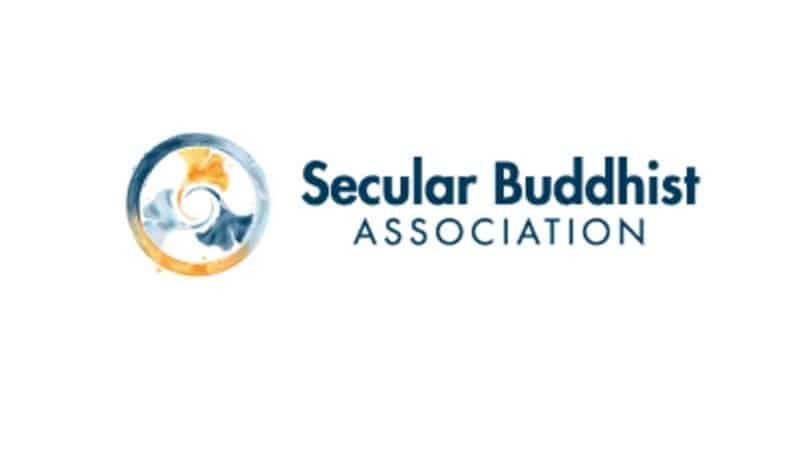POSTS:
Secular Buddhism

Two misconceptions about secular Buddhism
Despite the claims of some critics, secular Buddhists are not anti-religious and the goal of a secular dharma is not simply stress reduction but a radical transformation of individuals and society.

Stephen Batchelor on coming out as a secular Buddhist
When Stephen Batchelor first self-identified as a secular Buddhist in 2012 he said that ‘I see the aim of Buddhist practice to be the moment-to-moment flourishing of human life within the ethical framework of the eightfold path.'

A secular reinterpretation of the Eightfold Path
While the Eightfold Path is an essential framework and guide for traditional and secular Buddhists, the goal of the path for secular Buddhists is not nirvana but human flourishing in this life. This requires us to reinterpret the meaning and function of the eight path factors.

Three paths for secular Buddhists – crucial conversations and movements
Mike Slott identifies three trends or paths within secular Buddhism: 1) a dharmic-focused effort to reconstruct Buddhism, 2) bringing a secular form of Buddhism into the mindfulness movement, and 3) integrating secular Buddhist perspectives and insights into projects for radical, political transformation.

Three marks of existence, or three factors of human experience?
Mike Slott contends that, from secular Buddhist perspective, it is more appropriate to view impermancence, not-self, and dukkha as aspects of our experience rather than ontological characteristics of reality.

Bhikkhu Bodhi on traditional versus secular Buddhism
Ven. Bhikkhu Bodhi explores the differences between traditional and secular forms of Buddhism, and expresses concern that both approaches have viewed political activism as marginal to the dharmic path.

Secular Buddhism and the western search for meaning
… Winton Higgins traces the origins of secular Buddhism in interpretations of the Pali canon developed by Harold Musson and Stephen Batchelor.

Selected Articles from the SBA Website
Over the course of 10 years, the Secular Buddhist Association (SBA) published over 300 articles. Below you'll find a chronological list (most recent to the oldest) of some of SBA's most important and influential articles.

Core elements of a secular and socially-engaged Buddhism
Mike Slott explores how a radical social theory and core Buddhist insights are both essential to understanding the causes of suffering and creating a society in which all human beings can flourish.

The Dharma of Modern Mindfulness: A Review
By Mark Knickelbine | March 4, 2018 Originally appeared on the SBA website at https://secularbuddhism.org/the-dharma-of-modern-mindfulness-a-review/. One of the most common misunderstandings about MBSR and the other mindfulness-based interventions is that they consist of meditation techniques that have somehow been extracted or divorced from their original context in traditional Buddhism. From this standpoint, critics have referred to mindfulness as […]

Are secular Buddhists modern or traditional?
Derek LeDayn discusses the following questions in this article: What is secular Buddhism, or what are secular Buddhisms? Is secular Buddhism the same as modern Buddhism, or Buddhist modernism? How different is it from traditional Buddhisms? Are individual secular Buddhists modern or traditional?

Secular Buddhism: Divisive Criticism Instead of Collaborative Dialogue Once Again
By Ted Meissner | September 24, 2017 Originally appeared on the SBA website at https://secularbuddhism.org/secular-buddhism-divisive_criticism/. Many years ago I took lifetime precepts at Bhavana Society under Bhante Gunaratana, and have renewed them several times. One in particular is challenging me lately: Pisunavacha veramani sikkahapadam samadiyami. I take the precept to abstain from divisive speech. It's with a heavy […]

Buddhist Activism and Quietism
By Doug Smith | February 6, 2017 Originally appeared on the SBA website at https://secularbuddhism.org/buddhist-activism-and-quietism/. Many of us are looking for the right way to engage with contemporary political concerns. What does Buddhism have to teach us? A couple of recent articles have taken this question in opposite directions. In “Let’s Stand Up Together”, Bhikkhu Bodhi argues that Buddhism has a […]

What is Dependent Arising?
By Linda Blanchard | January 29, 2017 Originally appeared on the SBA website at https://secularbuddhism.org/buddhist-activism-and-quietism/. I said that dependent arising is both very simple, and very complex, but always helpful, and worth the effort to understand. Let me start with the very simple. It Really Is Simple Dependent arising says that we come into the world with certain […]

On Some Criticisms of Modern Mindfulness
By Doug Smith | May 16, 2016 Originally appeared on the SBA website at https://secularbuddhism.org/on-some-criticisms-of-modern-mindfulness/. Is the contemporary mindfulness movement a kind of "fad" that misconstrues the essential message of the Buddha? Pieces by Edwin Ng and Ron Purser (2016a, 2016b) and Stephen Schettini (2014), not to mention the earlier “McMindfulness” critique by Purser and Loy (2013) argue that this […]
EXPLORE BY SECTION
SEARCH THE SITE
RECENT POSTS








